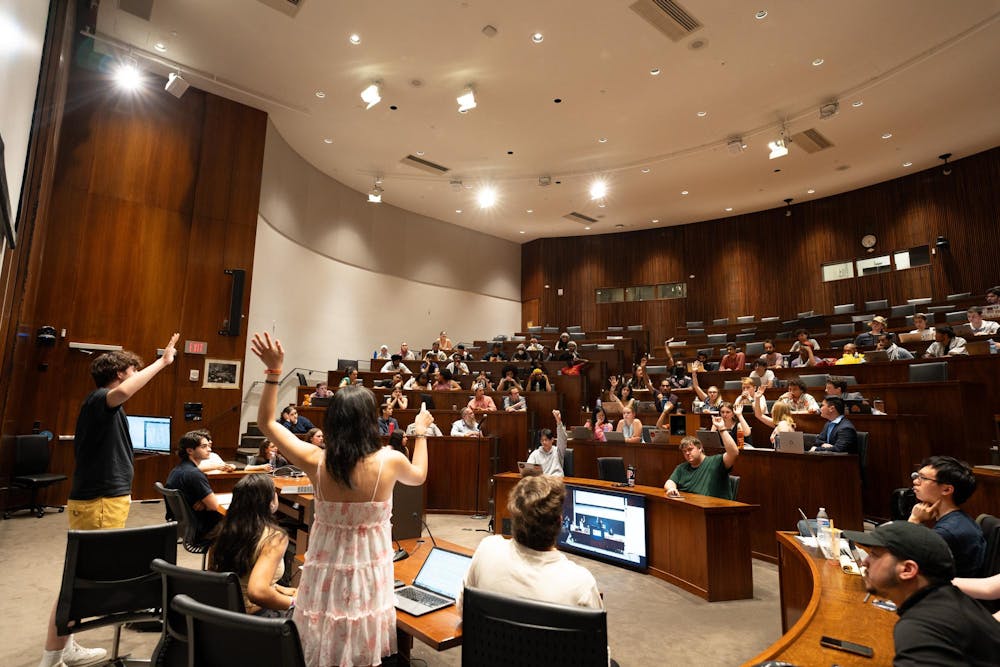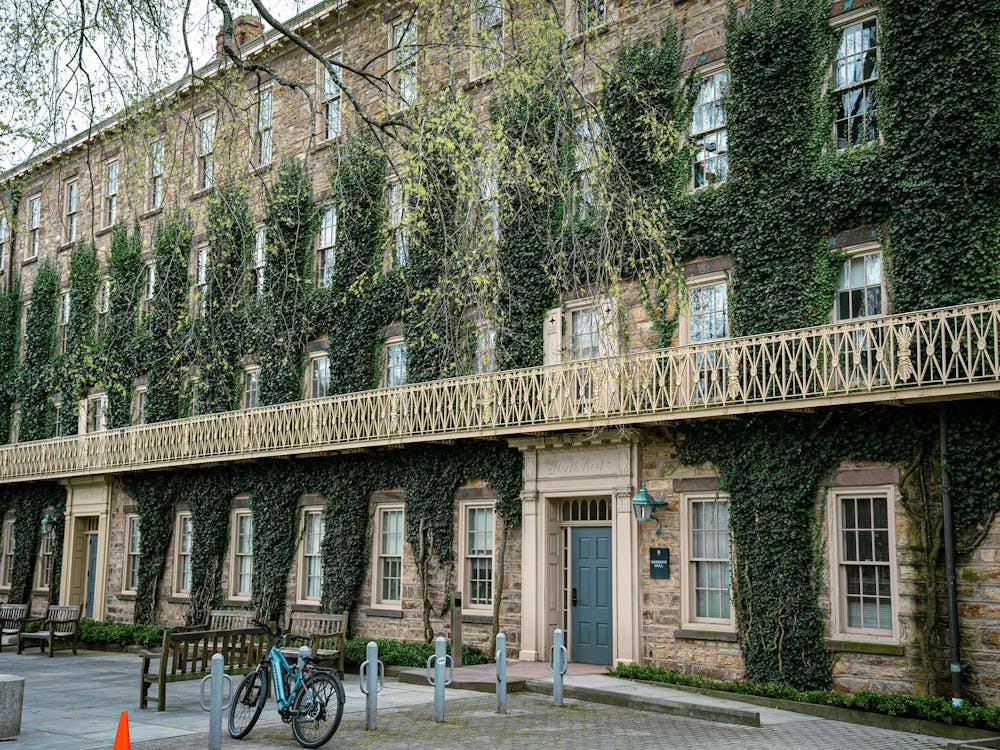The following is a guest contribution and reflects the author’s views alone. For information on how to submit a piece to the Opinion section, click here.
On Thursday morning, April 25, Princeton began its own “Gaza Solidarity Encampment,” following the national trend of students setting up encampments in response to the genocide in Gaza. Within six minutes, two graduate students were arrested.
On the same day, The Daily Princetonian Editorial Board released a statement condemning the arrest of two graduate students. This was joined by written condemnations of the University’s response to peaceful protests by the Black Student Union (BSU) and almost 150 faculty members. Since the arrest of 13 additional students at Clio Hall, many other undergraduate and graduate groups have condemned the actions of the University. Yet, the Undergraduate Student Government (USG) failed to do so. USG doesn't represent the interests of students when it matters the most — and this lack of representation stems from the fact that students don’t engage enough with USG.
While the encampments began on Thursday, USG was only able to set up an emergency meeting on Saturday. They voted to move into an executive session within the first five minutes, excluding numerous community members and, as a non-voting member of USG, myself. The next day, the USG held another meeting, this time open to the public and with around 100 attendees. 10 public comments were made from individuals and student organizations, and eight of them — including my own — called on USG to make a statement condemning the University’s arrest of the two graduate students and urging them to not repeat that mistake with future protesters. And while Sustainability Chair Quentin Colón-Roosevelt ’27 had the votes to pass an amendment doing just that, the final vote did not include his amendment because of an error in counting abstaining votes.
As an Alumni Affairs Co-Chair, which is a non-voting USG senate position, and a member of two USG committees, my role in USG is minor. But from my experiences within USG and from seeing what other student governments have done, I find USG’s inability to directly condemn the University’s arrests to be deeply disappointing.
The University rightfully praises its history of protests, including sit-ins and occupations in administrative buildings. The right to peacefully protest should be fundamental to the rights of all students, and should be so even if disruptive. And yet, USG was unable to follow the lead of an impartial newspaper, BSU, almost 150 faculty, dozens of other student groups, and Columbia’s and many other universities’ student governments.
The USG’s failure to condemn the administration’s actions is proof that they don’t really represent students anymore, and instead are more concerned with representing the interests of the administration. While there is no official record for how everyone voted, I was there. Neither the USG President Avi Attar ’25 nor the Vice President Srista Tripathi ’25 voted to condemn the student arrests. Neither did the Diversity, Equity, and Inclusion Chair Abby Lu ’26, despite most arrests in the last week having disproportionate effects on students of color. Mental Health Chair Meera Kochhar ’25 was the only member of USG that didn’t attend the meeting and didn’t send a proxy to vote in her place, despite the fear of arrest and force being used against students likely having serious mental health implications for protesters. Even Daniel Shaw ’25, one of the two people who originally submitted statements for consideration, voted against condemning the arrests. Others abstained or voted against this amendment as well. Kligman and Roberto Lachner ’26 staunchly opposed the release of a statement of any kind. On the other hand, Colón-Roosevelt, Genevieve Shutt ’26, and Isabella Shutt ’24 strongly advocated for the rights of students inside and outside of the meeting and were three of the only 11 members that voted in favor of condemning student arrests.
However, the blame cannot rest solely on these members of USG. Only 31 percent of students voted in the most recent U-Councilor election, and only one person actually remained in the race for President. Many USG races go uncontested, and some positions have historically gone unfilled. What the lackluster USG statement on protests shows is that it is extremely important that students take USG elections seriously in the future. The USG will take representing the interests of students over Princeton’s administration more seriously when voters make more of an effort to pick candidates that are clearly passionate about representing students, in addition to having more students engaging with candidates and voting in elections.
The administration does, at times, take the voice of USG seriously. As a member of the Mental Health Committee, I’ve met with numerous administrators in meetings I would most likely not have ever had if it wasn’t for the University’s recognition of USG as representative of the student body. The President, Vice President, and U-Councilors are also voting members of the Council of Princeton University Community, giving them direct decision-making powers alongside numerous administrators and faculty. This potential power is why USG had such an important responsibility to outright condemn the arrests of the two peaceful protestors and the arrests of future peaceful protestors.
No matter their personal views on what is going on in Gaza or Israel, the rights of students to engage in protest and activism is vital. As an Iranian immigrant, I’ve lived and been in Iran before, during, and after the “Woman, Life, Freedom” movement, which occurred following the death of Mahsa Jina Amini for “improperly” wearing her hijab, leading to worldwide protests against the government. I have seen firsthand how repressive bodies of power can abuse protesters, especially on university campuses. Witnessing this is why the right to peaceful protest is so important to me. I find it extremely concerning and disheartening that Princeton doesn’t protect peaceful protesters and that USG has failed to condemn this injustice. In the future, I implore all students to vote for USG representatives that will actually take their positions seriously enough to explicitly defend students’ rights.
Arman Nemati is a first-year prospective Politics major and Near Eastern Studies minor. He can be reached at an6029[at]princeton.edu.









